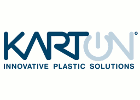Dutch startup Lightyear has found a manufacturing partner to build its solar-powered electric car, the Lightyear One.
Finnish contract manufacturer Valmet Automotive signed a letter of intent with the startup this week, and the two companies plan to start building prototypes together in early 2022, with an eye on midyear for the beginning of production of nearly 1,000 vehicles. A second vehicle meant for mass production is yet to be announced.
Lightyear was founded in 2016 by a team of engineers who had competed together in the World Solar Challenge, a race held every few years in the Australian outback that’s meant to advance the idea of solar-powered cars. The startup showed off the first prototype of the Lightyear One in 2019. It’s a sharp-looking sedan, and Lightyear made some big promises at the time, including 725 kilometers (450 miles) of range. Lightyear also said the car would be extremely efficient and be able to generate about 12km (7.5 miles) per hour with the solar cells embedded in the roof — effectively making it possible for owners to go long stretches of time without plugging it in. All of this will come at a price: the limited-run Lightyear One costs around $165,000.
Lightyear said Monday that it spent more than a year trying to find the right manufacturing partner before coming to an agreement with Valmet. The Finnish contract manufacturer has been around since the late 1960s and has built cars for Saab, Mercedes-Benz, and even Porsche. It’s currently co-owned by a large Finnish private equity group and the government of Finland (each with a 39 percent stake) and is part-owned by leading Chinese battery company CATL (which has a 22 percent stake).
Using solar cells to power an electric vehicle is a tall task; there’s just such a great disparity between the amount of energy that the best cells can capture from the sun’s rays and what’s needed to make a two-ton hunk of metal move at speed. But Lightyear isn’t the only team trying to make it happen. Aptera — a California startup that crashed in the aftermath of the Great Recession — was recently resurrected and has been raising money while building prototypes of its own funky three-wheeled design. German startup Sono Motors is also working on a solar-powered electric car.
Lightyear has raised around $100 million to date, though roughly three-quarters of that funding has come in 2021, so it’s been building a big head of steam. In April, it racked up a partnership with Japanese tire giant Bridgestone, and in early July, it revealed results from a long-range test that show the company could actually meet its ambitious range and solar generation goals.


























